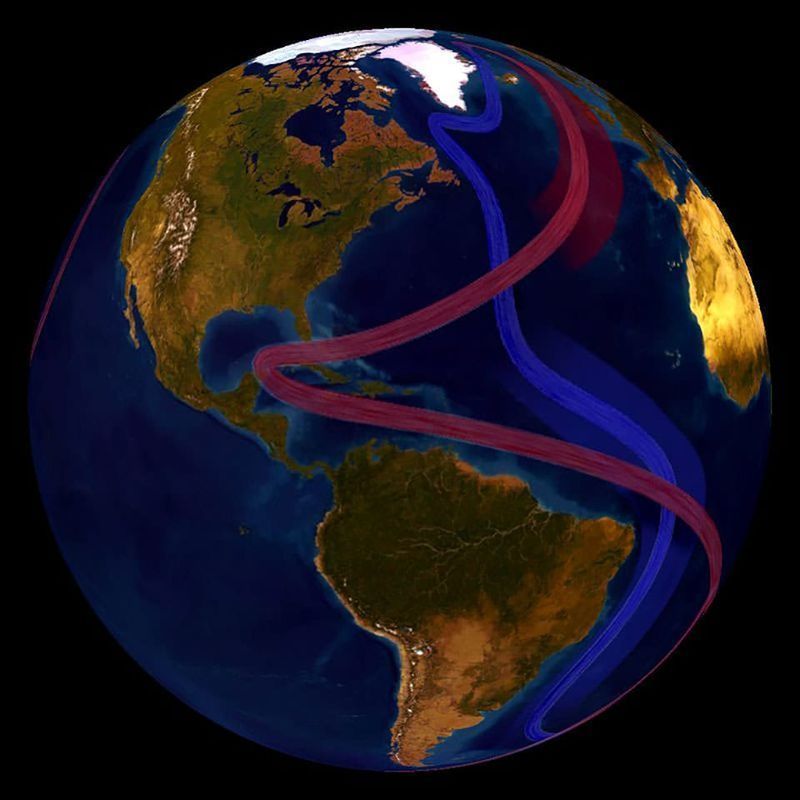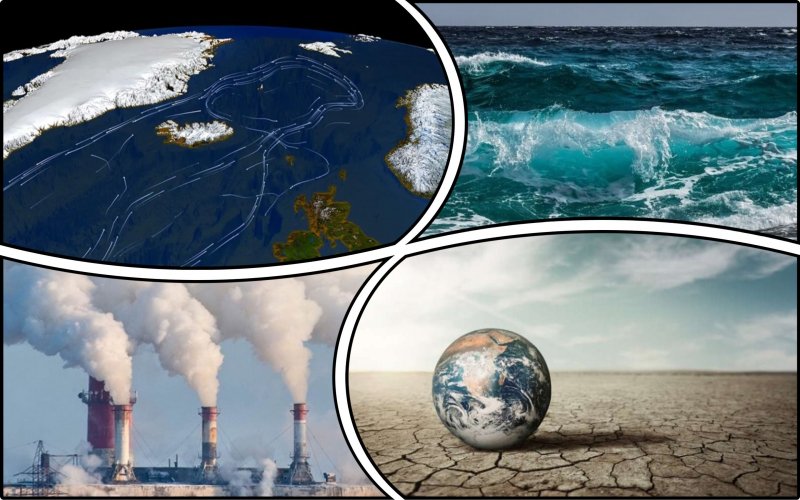A study by scientists from Utrecht University, the Netherlands, has shown that the critical Atlantic Ocean Current System (AMOC) is under threat and may come to a halt, leading to catastrophic climate change worldwide.
The collapse of the AMOC will change the structure of Asian monsoon rains, rainy and dry seasons in the Amazon, lead to a significant rise in sea level, severe frosts in Europe, etc, reports Inside Climate News..
It is noted that the AMOC ensures the circulation of warm and cold water between the poles. This dynamic maintains the strength of the circulation and the relative warmth of the Northern Hemisphere. The stoppage of the current system may occur due to an increase in freshwater supply from melting ice sheets and rivers.

iflscience.com
The material emphasized that as of 2021, the melting of the Greenland ice sheet added about 400 billion tons of water to the North Atlantic every year. Every year, the Arctic rivers release more and more fresh water. In addition, the sharp reduction in industrial aerosols that cool the atmosphere also increases the melting of ice.
Scientists warn that the catastrophe could happen much earlier than predicted by the Intergovernmental Panel on Climate Change (IPCC). According to their data, the probability that this will happen before 2100 reaches only 10%. However, according to scientists from the Niels Bohr Institute of the University of Copenhagen, this may happen in 2050.
"This is a global change," said René van Westen, a climate and physics researcher from Utrecht University. "Along with changes in rainfall distribution, the collapse of the AMOC may also lead to the partial disappearance of some other oceanic currents in the Atlantic, such as the Gulf Stream."
He emphasized that as a result of climate change, sea levels have already risen, exacerbating the risks.
According to him, the east coast of the United States will be most affected by sea level rise due to the collapse of the AMOC. After all, the warm waters that expand and raise the sea level will accumulate there instead of flowing north. Warming coastal oceans can also contribute to extreme heat waves over land and more intense storms and rain.
Van Westen added that without warm water flowing towards the Arctic, winter sea ice could spread as far south as the UK, and some regions of Europe would dry out quickly and cool by 1.5℃ per decade.
Ice and climate researcher Peter Ditlevsen from the Niels Bohr Institute at the University of Copenhagen said that stopping the AMOC would make farming in Europe impossible. Western Europe may cool to pre-industrial levels, but become drier. Other parts of the planet will warm faster, especially the southern hemisphere and the tropics, because the heat transport system will not be able to transfer the rising ocean heat northward.
Van Westen emphasized the importance of combating greenhouse gas emissions and limiting global warming.
The paper said that the last AMOC failure occurred about 12,000 years ago, and likely triggered cooling in the northern Atlantic. Because of this, the temperature in Greenland dropped by 4-10°C in a few decades, and the glaciers temporarily advanced.
Earlier, EcoPolitic wrote, that a study by scientists from Copenhagen showed that the Atlantic Meridional Overturning Circulation (AMOC), that is, the system of ocean currents that includes the Gulf Stream, will stop between 2025 and 2095, with a higher probability in the 2050s.
As EcoPolitic previously reported, according to the data of the EU Copernicus climate and weather monitoring service, in 2023 the average temperatures exceeded the indicators of the pre-industrial period by 1.52°C.





